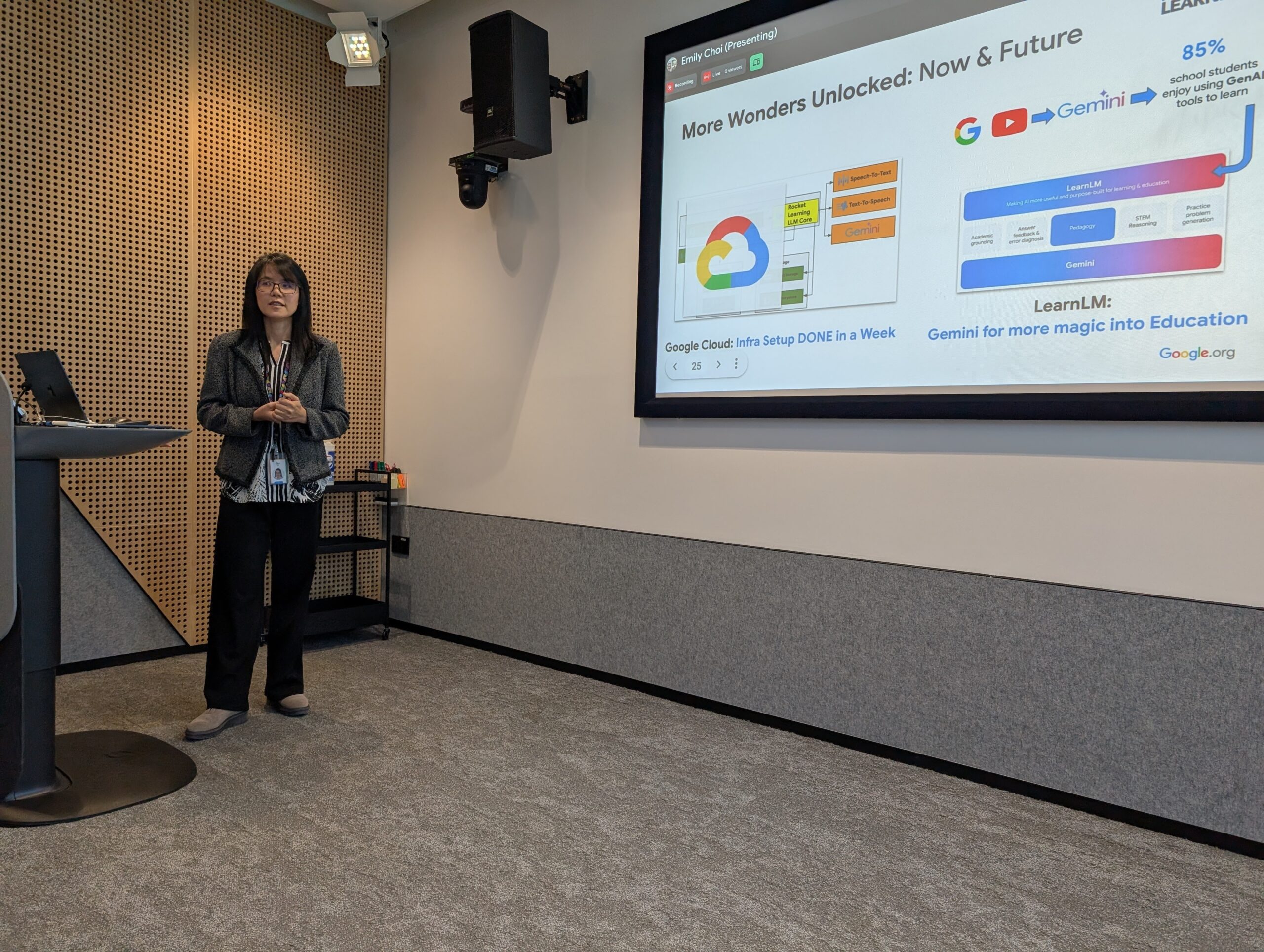– By Apurva Desai, Communication Lead and Aftab Shaikh, Sr. Communication Associate
AI is reshaping how children learn, making education more engaging, personalised, and accessible. By adapting to individual learning needs, offering multilingual support, and creating interactive experiences, AI is transforming foundational learning in ways that were previously unimaginable, specially in underserved communities.
In the second part of the Drivers of ECCE series on “#WomenShapingAIandLearning”, we spotlight Ms. Bijun He, Product Lead, GenAI at Google.org, for leading the collaboration with Rocket Learning in developing Appu, an AI-powered learning companion designed for first-time AI users. With extensive experience in building AI-driven products, Bijun shares her journey of applying technology for social good, the challenges and insights from bringing AI to young learners, and the future of personalised education in underserved communities.


Q: You’ve worked on various AI products, but Appu is unique because it’s built for first-time AI users in underserved communities. What inspired you to take on this challenge?
Bijun He: Rocket Learning’s success in leveraging technology to provide quality education inspired me to take on this challenge.
When I was working at Google, at the frontier of technology, I saw how AI could provide personalised and engaging experiences to improve people’s lives both online and offline, but very few products in the world have focused on young children in underserved communities.
Google.org’s mission is to apply Google’s innovation, research, and resources to promote progress and expand opportunity for everyone. So Google.org’s Rocket Learning fellowship was a unique opportunity to make a tangible difference in the lives of these children and empower them through AI-driven education.
Q: What has been the most surprising or eye-opening moment in developing Appu?
Bijun He: The enthusiastic response from the field and the children’s quick adoption of Appu has been eye-opening. Unlike adults, who try to click different buttons on phone screens, the children focused on and enjoyed the conversations with Appu. They considered such conversations as games and wanted to play them repeatedly.
Q: Tech remains a male-dominated space. What is one challenge you have faced as a woman in AI, and how did you overcome it?
Bijun He: One challenge I’ve faced is often being one of the few women in technical meetings, which can sometimes lead to my ideas being overlooked initially. To overcome this, I’ve learned to be proactive and focus on driving outcomes.
For example, I do this by building my ally before the meeting to ensure some key stakeholders are interested in my ideas. Then, I propose a meeting agenda to cover those stakeholders’ interests, my proposal, and other people’s proposals. Lastly, I guide the discussion to focus on data and insights instead of just personal opinions. This results in productive meetings with alignment across all stakeholders.
Preparation, clear communication, and a focus on solutions have been key to ensuring my contributions are recognised.
Q: AI is evolving rapidly in 2025—how do you see it shaping personalised, inclusive learning experiences for children in the next five years?
Bijun He: In the next five years, I see AI further revolutionising personalised and inclusive learning by providing more adaptive and tailored educational content. AI tools will be able to assess individual learning styles and needs in real-time, offering customised learning paths and support. Features like multilingual capabilities and conversational learning will make education more accessible.
Additionally, I believe that underserved communities could embrace AI faster than well-served communities in order to close the gap in education once AI becomes available to them. According to new Stanford University-led research published recently, AI language models now assist in writing up to a quarter of professional communications. It is having a significant impact, especially in less-educated parts of the United States.
Q: What advice would you give to young women aspiring to enter product leadership, especially at the intersection of AI and education?
Bijun He: My advice would be to embrace a growth mindset and not hesitate to take on challenges. Be proactive in seeking out opportunities to learn and develop your skills in both AI and education. Find mentors who can guide you and build a network of supportive peers. Finally, remember that your unique perspective is valuable.
In the education sector, female product leaders also have a unique advantage in bringing valuable insights. Across many countries, women educators dominate the school workforce, especially in primary and secondary education. At home, mothers are often the first and even primary tutors to their children.
Speak with those users as a friend or a peer, and you can build your perspective and be confident in bringing your ideas to the table and advocating for inclusive and impactful solutions.